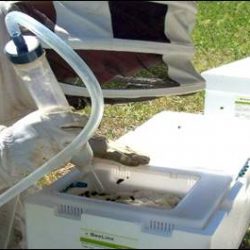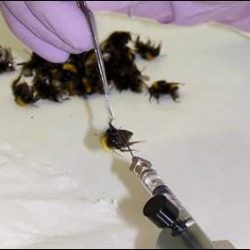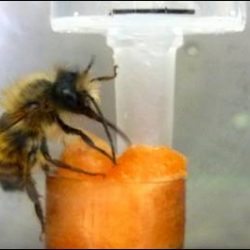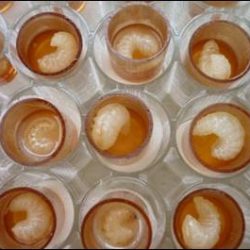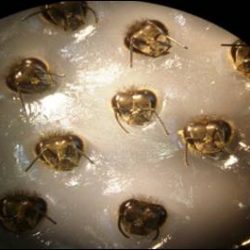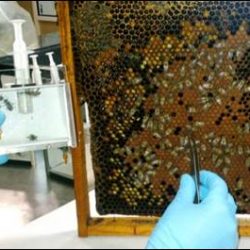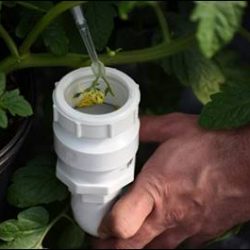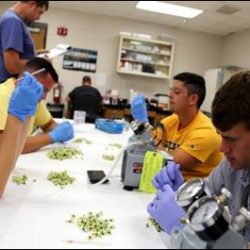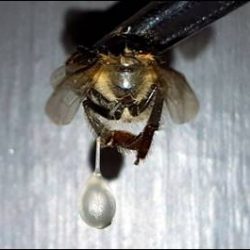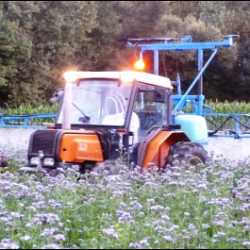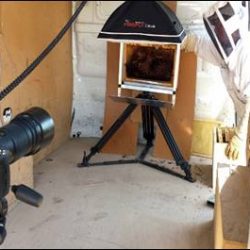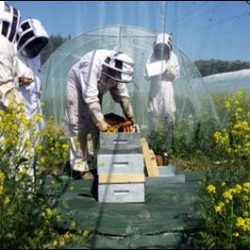Pollinator studies
SynTech’s Bee Heath Unit team provides complete pollinator study programs, from protocol design through implementation including sample analysis, QA and submission of final reports.
Programs are delivered by 40 pollinator staff throughout Europe, the USA and Latin America. These include 10 Study Directors, 15 Principal Investigators and 15 Laboratory/Field Scientists, and our research agreements with internationally-recognized bee health experts and beekeepers.
Our main pollinator laboratories are located in Mâcon and Nimes, France, Stilwell, USA, Valencia, Spain and Piracicaba, Brazil and we offer higher tier semi-field and field studies from our field stations and satellite sites in Europe, USA and Latin America.
Our full pollinator testing package includes acute and chronic laboratory tests, semi-field and field studies on adult and larvae of honey bees, bumble bees and solitary bees:
Test species
- Honey bees (Apis mellifera mellifera, A.m. ligustica, A.m. carnica)
- Bumble bees (Bombus terrestris, B. impatiens)
- Mason bees (Osmia bicornis, O. cornuta, O. lignaria)
- Leafcutter bees (Megachile rotundata)
- Brazil stingless bees
Laboratory tests
Acute effects
- Honey bee adult oral and contact acute tests (OECD 213, 214 and OCSPP 850.3020)
- Honey bee 7-day larval acute test (OECD 237)
- Honey bee acute toxicity of residues on foliage (OCSPP 850.3030)
- Bumble bee oral and contact acute tests (OECD 246, 247)
- Solitary bee oral and contact acute tests (ICPPR/OECD Ring Test, 2016, 2017)
Chronic effects
- Honey bee 10-day adult chronic test (OECD 245)
- Honey bee 8-day larval chronic test (OECD GD 239 modified)
- Honey bee 22-day larval chronic test (OECD GD 239 and Univ. Florida)
Higher tier studies
Residue (bee matrix) studies
- Tunnel (bee collection) or open field conditions (hand collection)
- Pollen and nectar hand collection experience with more than 40 crops
- Sampling from the hive and from the foragers (pollen load, stomach preparation and nectar extraction)
Side effect studies
- Semi-field and field studies on arable crops and orchards
- Brood studies in tunnel or open field conditions (OECD 75, EPPO 170)
- Feeding studies (Oomen, 1992)
- Guttation studies
- Effects of seed treatment dust
For information on pollinator studies in Brazil click here
For further information please email: info@syntechresearch.com


